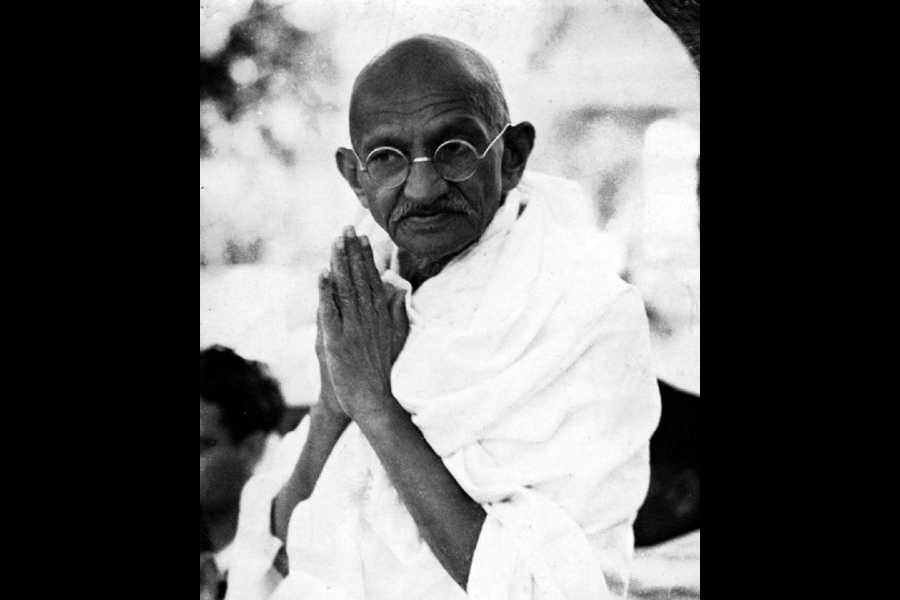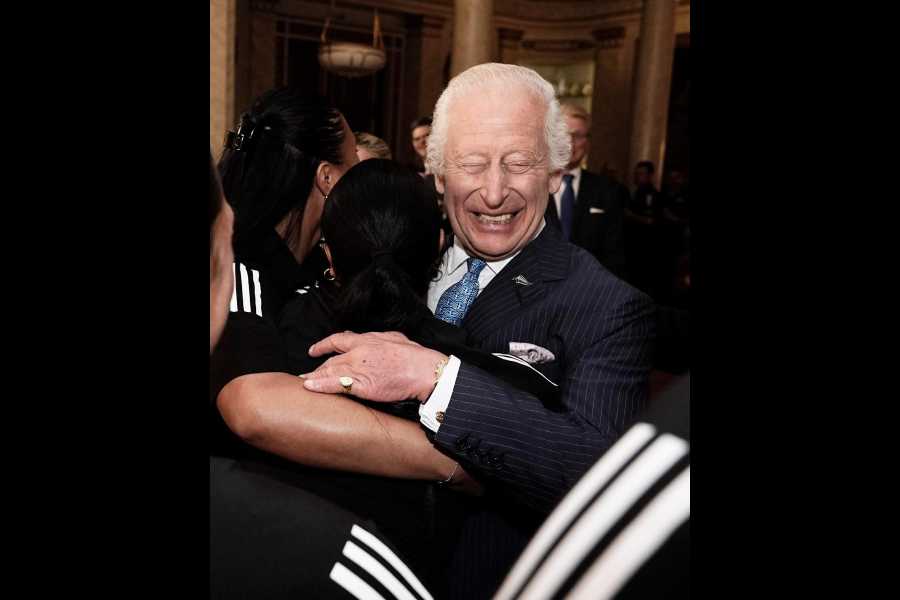Royal embrace
The late Queen Elizabeth would not have done it in a million years but in a break with established royal protocol, members of the British royal family, led by King Charles III himself, have started to hug people as a form of affectionate greeting. “A hug?” the King was heard asking at a Buckingham Palace reception for rugby players from New Zealand. “Why not?” “Rarely has he looked more surprised and delighted,” noted a royal commentator. “It is a sign of the times, a generational leap between reigns, a desire to connect with communities of all ages, and down largely to the personalities of senior members of the Royal family.” Catherine, the Princess of Wales, who is also being treated for cancer, has been hugging patients, especially children, as has her husband, William, the Prince of Wales. Although Charles has relaxed royal protocol on hugging, he has some way to go before he catches up with Narendra Modi.
Caprine links
My local supermarket ran out of cow’s milk last week so I came home with a carton of goat’s milk, which some say is healthier but is an acquired taste. I checked; when Mahatma Gandhi came to Britain in 1931 for the Second Round Table Conference to discuss Indian independence, he brought with him two goats to ensure his supply of milk. The one called Nirmala merited obituary notices in American newspapers when she died in 1947.

Mahatma Gandhi.
What has become very popular in Britain is goat’s cheese. Incidentally, the historian, William Dalrymple, confirmed to a London audience last week that he and his wife and their three children are very happy living on a goat farm outside Delhi.
Inspired art
Reflect on this group of artists who have contributed 150 works for the exhibition, The Imaginary Institution of India: Art (1975-1998), at the Barbican Art Centre in London: Pablo Bartholomew, Jyoti Bhatt, Rameshwar Broota, Sheba Chhachhi, Anita Dube, Sheela Gowda, Sunil Gupta, Safdar Hashmi, MF Husain, Rummana Hussain, Jitish Kallat, Bhupen Khakhar, KP Krishnakumar, Nalini Malani, Tyeb Mehta, Meera Mukherjee, Madhvi Parekh, Navjot Altaf, Gieve Patel, Sudhir Patwardhan, CK Rajan, N Gieves Rimzon, Savi Sawarkar, Himmat Shah, Nilima Sheikh, Arpita Singh, Jangarh Singh Shyam, Vivan Sundaram and J Swaminathan. The exhibition has been curated by Shanay Jhaveri, head of visual arts at the Barbican, who has collaborated with the Kiran Nadar Museum of Art in Delhi. Jhaveri told me that the issue of violence against women, the kind witnessed at the RG Kar Medical College and Hospital, had influenced “a number of artists with questions of feminism.”
Memory loss
Dementia is a terrible disease taking a dreadful toll on many elderly Indian parents who arrived in the UK 50 years ago. Tanika Gupta has set her new play, A Tupperware of Ashes, in a Bengali family, with the main character, Queenie Mukherjee, played by Meera Syal.
Queenie is a successful businesswoman who owns a Michelin star restaurant. We see her rapid descent into dementia in a play now being staged at the National Theatre in London. Her two sons, Raj and Gopal, and doctor daughter, Kamala, try to cope with their mother at home but when she starts waving kitchen knives at children she no longer recognises they see no option but to put her in a care home. Being Tanika, there are touches of Tagore in the play, with a brief rendering of “Ekla chalo re”.
The children are berated — unfairly — by Queenie’s best friend from her schooldays for not persisting with their mother at home. “Ungrateful children. Chucking her out on the scrap heap. Should be ashamed of yourself…You’ve become like the English. They treat their pets better than they treat their parents… In our culture, service to our parents is defined as life’s highest honour.”
I can vouch for the play’s authenticity, having dealt with my elderly uncle’s vascular dementia. He died in hospital on the very day I was being forced to move him to a care home. There is no cure for dementia and the condition gets progressively worse, which is exactly the message Queenie’s children receive from her consultants. To get around Calcutta airport customs, her ashes are brought for dispersal in the Hooghly disguised as talcum powder.
Queen of crime
Among a new crop of talented crime writers is Ram Murali, whose intriguing Death in the Air, set near Rishikesh, reminded me of an Agatha Christie novel. Ram, born in New York to parents from Tamil Nadu, has lived in Britain for the last seven years. On Monday, when we had a chat in the downstairs café at the Waterstones bookshop in Piccadilly, he confirmed he had been greatly influenced by the Queen of Crime: “I have probably read every Agatha Christie book five times, and probably read them all three times by the age of 15.”










